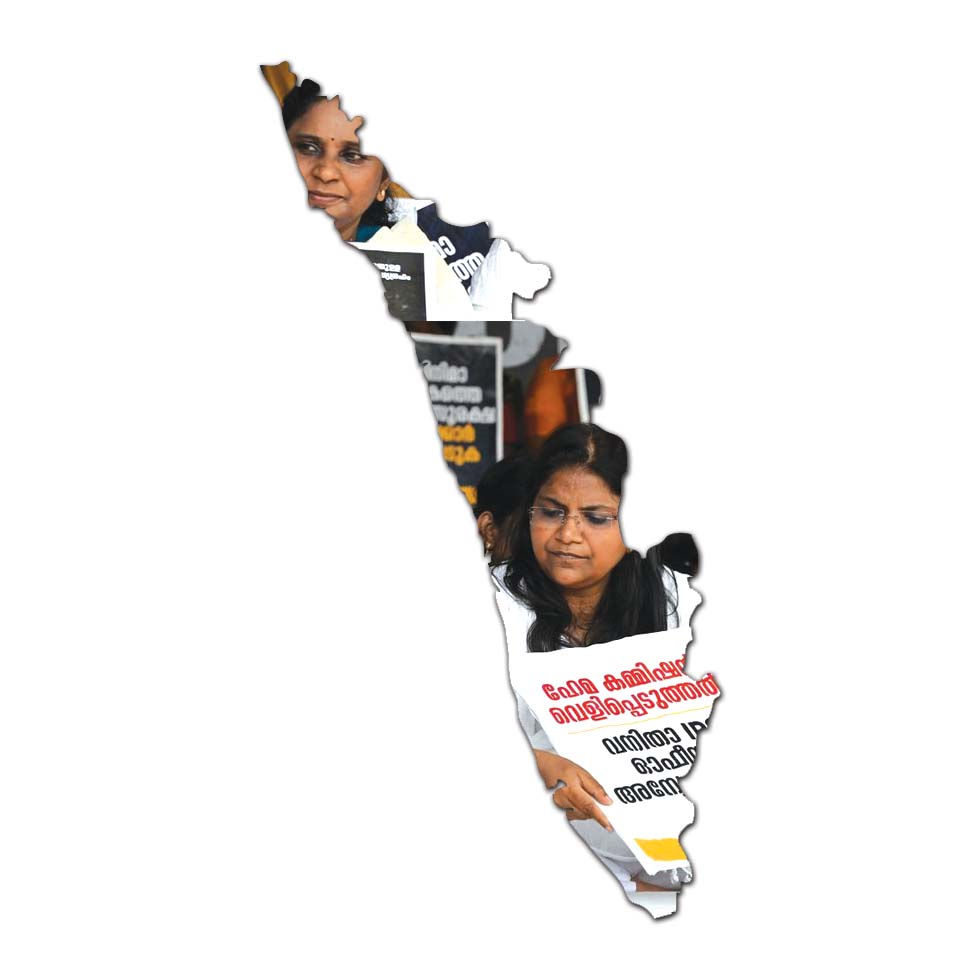From Outcry to Evasion
- Correspondent
- Jul 1
- 3 min read
A government that claimed to champion survivors has instead perfected the art of institutional gaslighting.

In 2017, amid national outrage over the abduction and sexual assault of a young female actor in a moving car, the Kerala government formed the Hema Committee and promised a reckoning with the rot inside the Malayalam film industry. The panel, led by retired Justice K. Hema, held the trust of survivors who spoke in chilling detail about a culture of predation and complicity. What followed was hailed as a watershed in India’s regional cinema landscape. That moment has now been callously buried under bureaucratic apathy, political cowardice, and a staggering betrayal of trust.
The government-formed SIT’s recent admission in the High Court that all 35 cases based on the Hema Committee report had been closed ostensibly because survivors did not step forward to record statements is a masterclass in abdication of responsibility. Over 120 First Information Reports (FIRs) were filed, of which only 26 have led to charge sheets. Of the original 35 rooted in the Committee’s painstaking work, just one has resulted in a formal chargesheet against a makeup artist. The rest have evaporated in a cloud of official excuses and survivor silence. That silence, however, is not evidence of falsehood or exaggeration; it is the byproduct of fear, fatigue and a system that never wanted to protect women in the first place.
The collapse of the investigation is a study in the failure of the state to build a credible, compassionate and confidential mechanism for justice. Survivors were dragged into a process they did not sign up for. Some, like actor Maala Parvathi, assert they gave statements to the Hema Committee under assurances of confidentiality only to see those statements used to trigger police action. Others who did want legal recourse were met with delays, institutional apathy and the lurking threat of retaliation from powerful men in the industry.
The Women in Cinema Collective (WCC), whose sustained advocacy forced the government’s hand in 2017, has been left stranded. What makes this betrayal particularly galling is the performative progressivism Kerala’s government routinely peddles.
It claims to champion women’s rights in press releases and public panels while failing to protect the very women it lauds. Chief Minister Pinarayi Vijayan, who initially projected himself as a crusader for justice in the film industry, has maintained a conspicuous silence. Questions from prominent actors like Parvathy Thiruvoth have been met with the dead air of indifference.
The hypocrisy is staggering. In a state that celebrates high female literacy, the government has presided over a campaign of slow, deliberate erosion of a process that once offered hope. Its silence has empowered the powerful. The allegations against industry stalwarts, including actors like Mukesh and Siddique, and director Ranjith, were never seriously pursued. Instead, many women found themselves unemployable, shunned by the very ecosystem they had tried to reform. In the Malayalam film industry today, it is safer to be an accused than to be a whistleblower.
What began as a truth commission of sorts has morphed into a cautionary tale. Survivors who dared to speak up have lost livelihoods, reputations and the fragile trust they once placed in the state. And now, the government claims that it cannot proceed because these same women are no longer coming forward. That is institutional gaslighting.
What was once branded a revolution is now a retreat. And what of the Hema Committee’s 300-page report, which was a damning indictment of gendered abuse, exploitation and silence in Malayalam cinema? Its redacted release came only after High Court intervention and RTI pressure. Even then, the promised reforms have been stuck in cold storage.
Kerala has long prided itself on being different from the rest of India: more literate, more progressive, more egalitarian. But when it comes to protecting women in the workplace, particularly one as powerful and patriarchal as the film industry, it has shown itself to be depressingly familiar.
Unless the government restores the faith, it has so thoroughly squandered, it will have succeeded in scripting its most cynical cover-up yet.





Comments